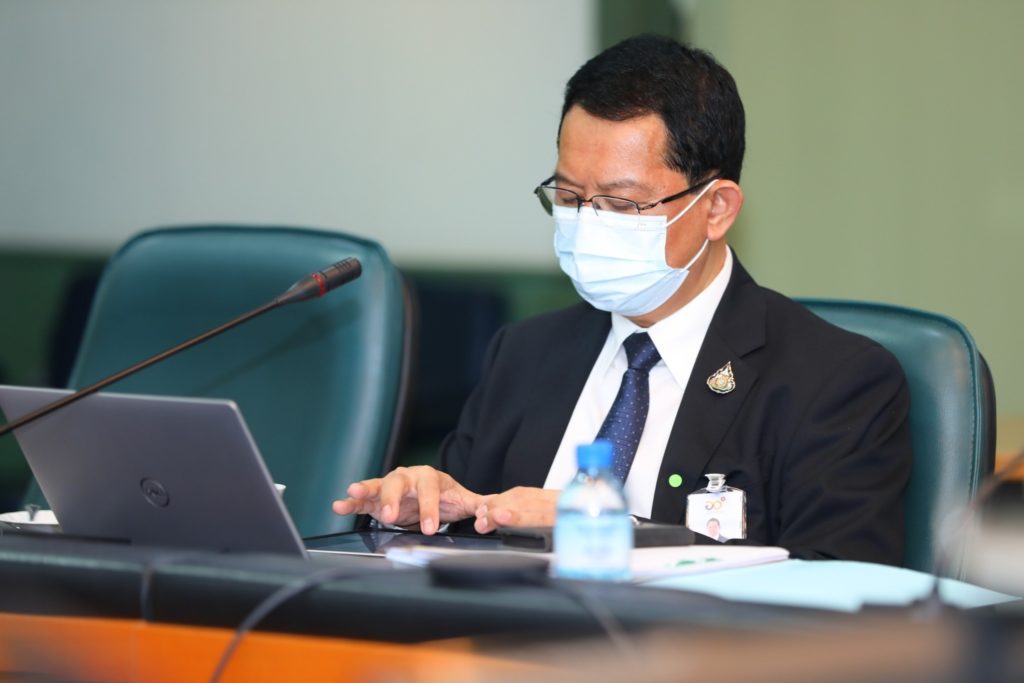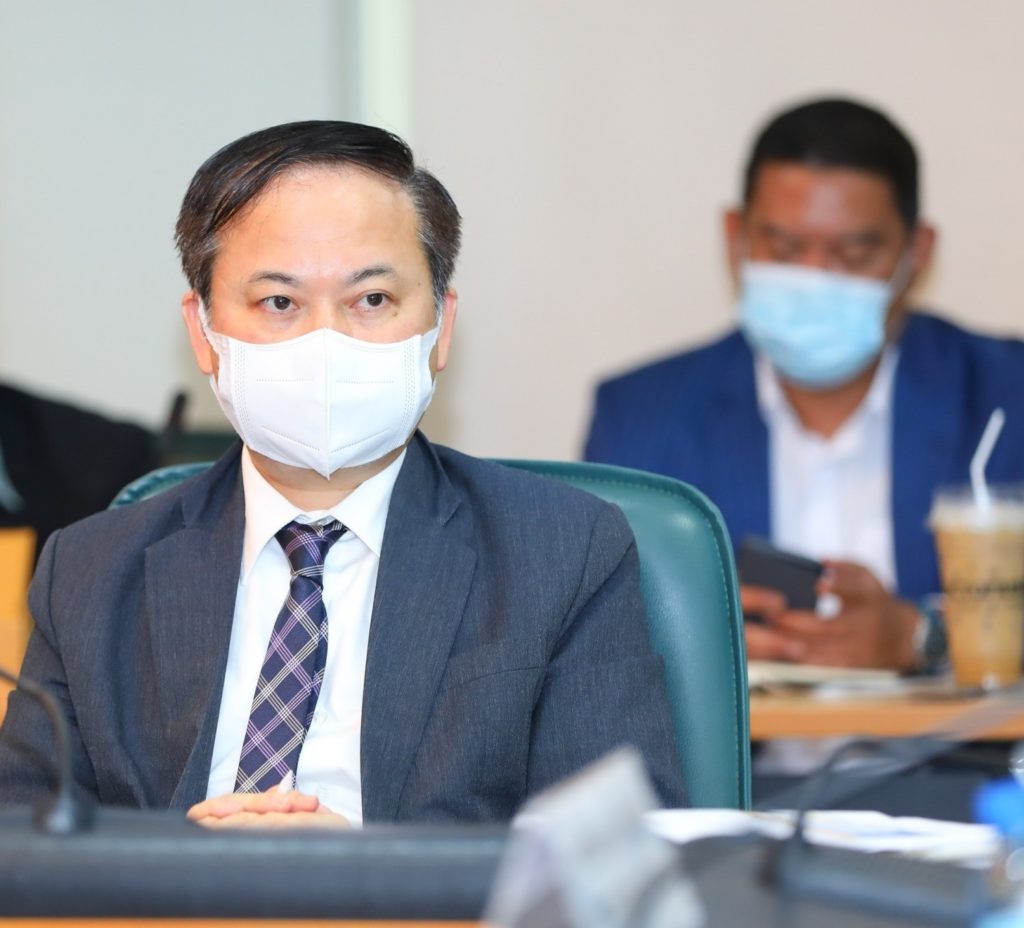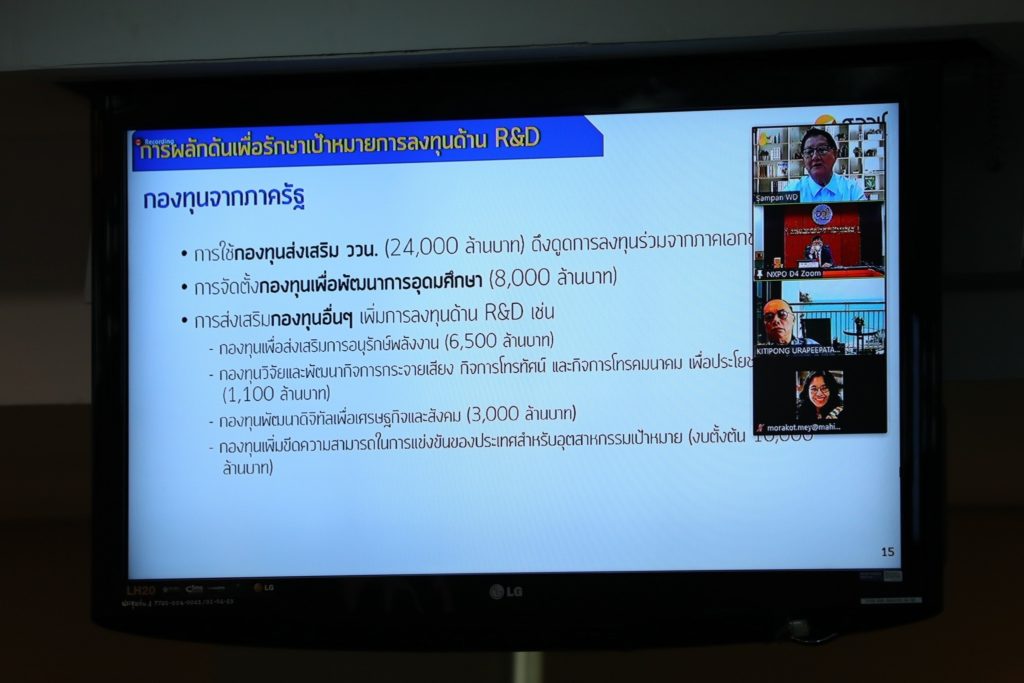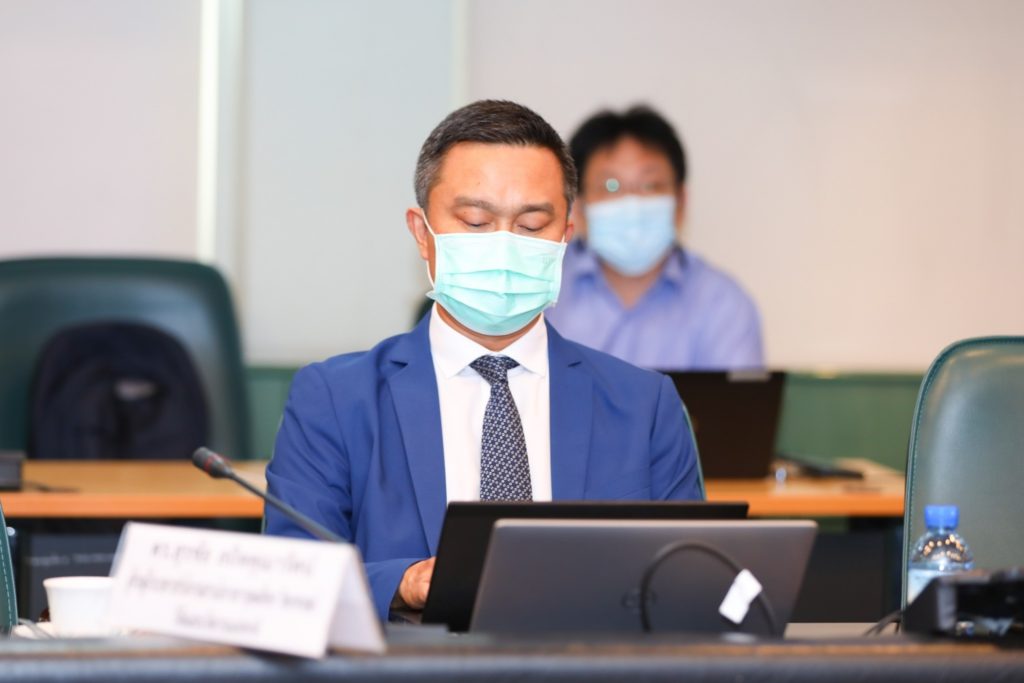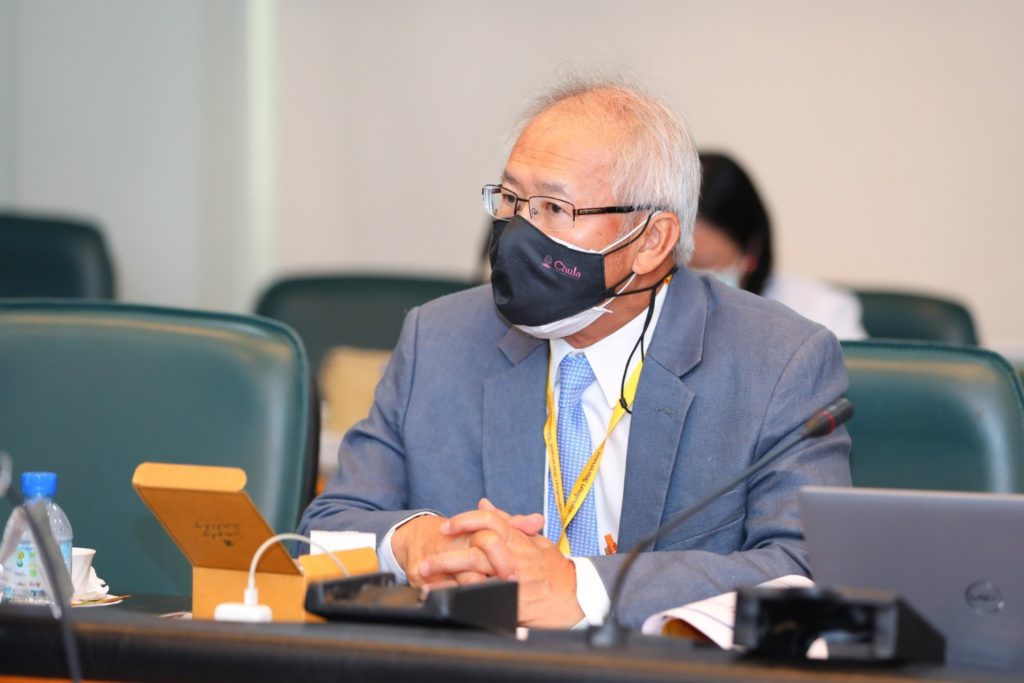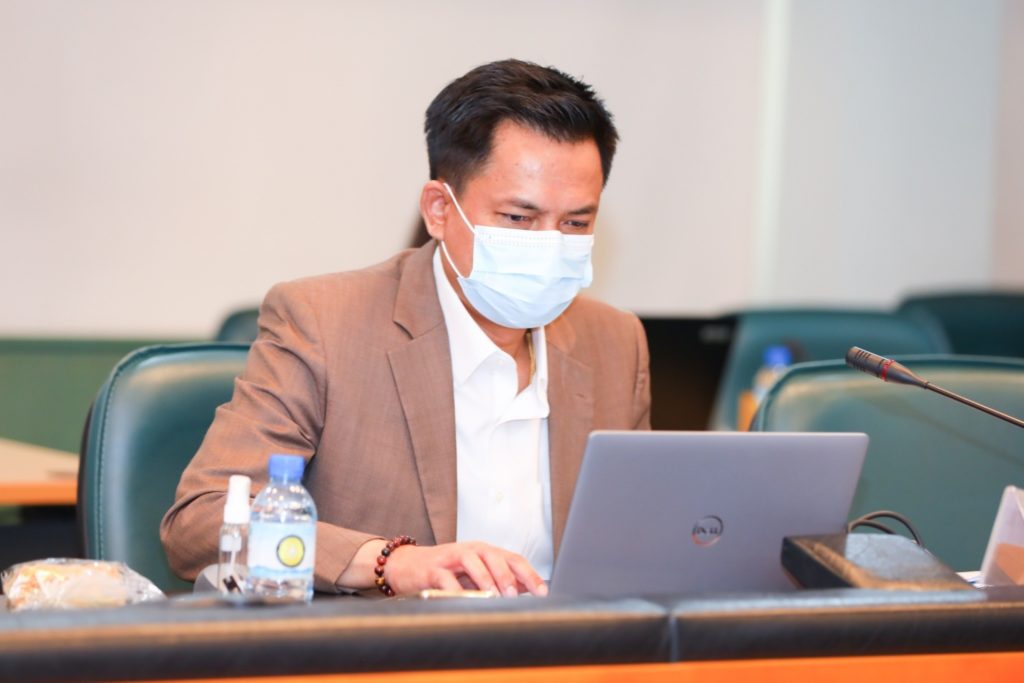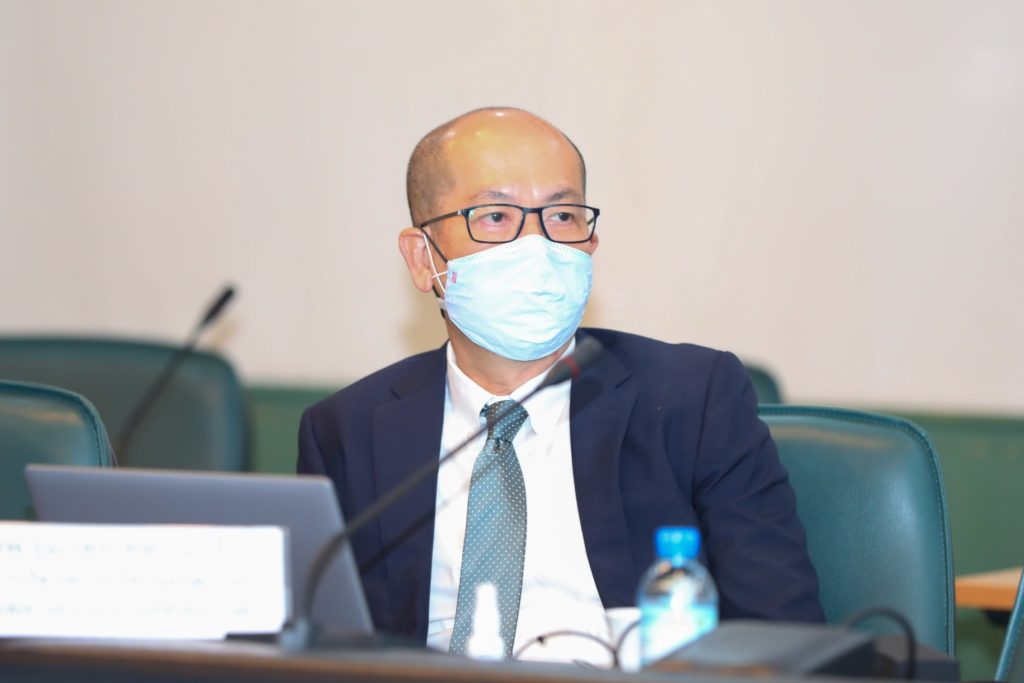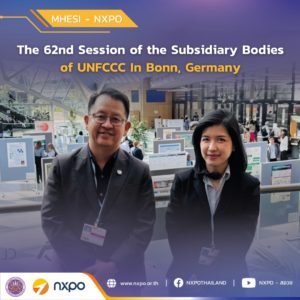At the NXPO Executive Board meeting on 19 May 2021 chaired by Prof. Dr. Anek Laothamatas, Minister of Higher Education, Science, Research and Innovation (MHESI), a number of important issues were discussed and deliberated, including a status review of national R&D investment 2020-2027 and 2020 performance reports of three funding units under NXPO framework.

NXPO and the National Research Council of Thailand (NRCT) compile data on R&D expenditure and R&D manpower from the public and private organizations every year as part of the effort to collect, analyze and monitor the country’s statistics of STI indicators for national STI policy and planning, as well as for submission to international organizations such as the International Institute for Management Development (IMD) for world competitiveness rankings.
Thailand’s gross expenditures on R&D (GERD) had grown steadily from 2010 to 2019 and reached 1% of GDP in 2017. Thailand’s numbers during the said period were relatively high among ASEAN countries, but still far below other Asian countries like Korea, Taiwan and China, the latter’s number being 2.14% of GDP.
In 2019, Thailand’s GERD totaled 193.072 billion THB or 1.14% of GDP. Of this amount, 149.244 billion THB (77%) was contributed by the private sector, whereas 43.828 billion THB (23%) by the public sector. The private sector’s R&D expenditure saw a significant increase with the top three sectors being (1) food industry at 32.321 billion THB, (2) petrochemical industry at 11.958 billion THB, and (3) finance and insurance at 11.579 billion THB. The increase in R&D spending in the finance and insurance sector can be explained by the emergence of FinTech in recent years.
The total number of R&D personnel was 166,788 in 2019 or 25 per 10,000 people. The goal is to reach 40 per 10,000 people by 2027.
The COVID-19 pandemic will have an impact on the R&D expenditures in both the public and private sectors and affect the GERD target of 2% of GDP by 2027. GERD is projected to reach only 1.46% of GDP if no adaptation is made in the public and private sectors. NXPO is currently developing policy and measures to address this matter, which may include rolling out more R&D investment incentives for the private sector.
Current programs aiming to encourage R&D investment include Innovation Fund that provides financial support to IDE (Innovation Driven Enterprise) and SMEs, Matching Fund Programs of PMU-B and the National Innovation Agency (NIA) in which the government and enterprises make joint R&D investment in research projects, Innovation List (government procurement program) and Innovation Club supporting startups to expand internationally.
Regulatory framework is another aspect that NXPO has been working on to encourage R&D investment. The office is facilitating ease of doing innovation business with actions such as the Thai Bayh-Dole Act proposal and a proposal to amend the Civil and Commercial Code on issues concerning startups investment such as convertible debt, vesting, employee stock option plan and preferred shares.
In addition, there are programs in various agencies that encourage R&D investment. These are, for example, investment incentives provided by the Board of Investment, 200% tax deduction for R&D expenses operated by the National Science and Technology Development Agency (NSTDA), digital transformation in SMEs by the Digital Economy Promotion Agency (DEPA) and tax incentive promoting high-skilled manpower development launched by BOI and the Revenue Department.
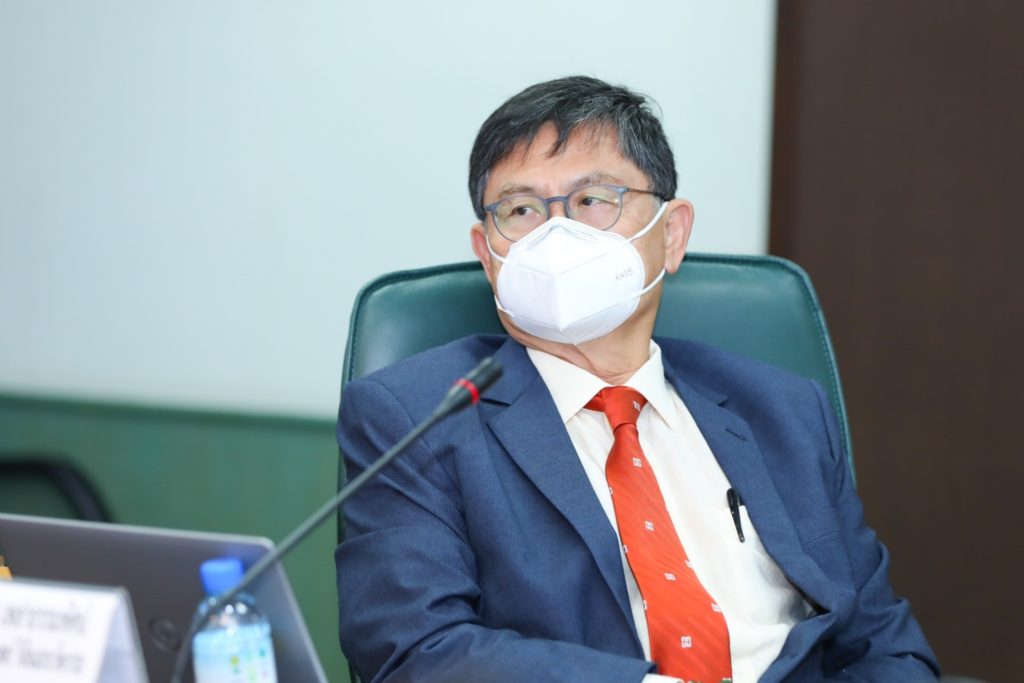
The 2020 performance reports of the three funding units were presented to the board, including highlights of each unit as follows:
- PMU-A (Program Management Unit for Area-based Development): R&D for targeted poverty eradication and capacity building of local enterprises to build a local and circular economy.
- PMU-B (Program Management Unit for Human Resources & Institutional Development, Research and Innovation): AI for All and frontier research program such as quantum technology.
- PMU-C (Program Management Unit for National Competitiveness Enhancement): the development of SARS-CoV-2 Test Kit (Real-time RT-PCR), xanthone extract from mangosteen pericarp and biosimilar pegfilgrastim or PEG-GCSF.

